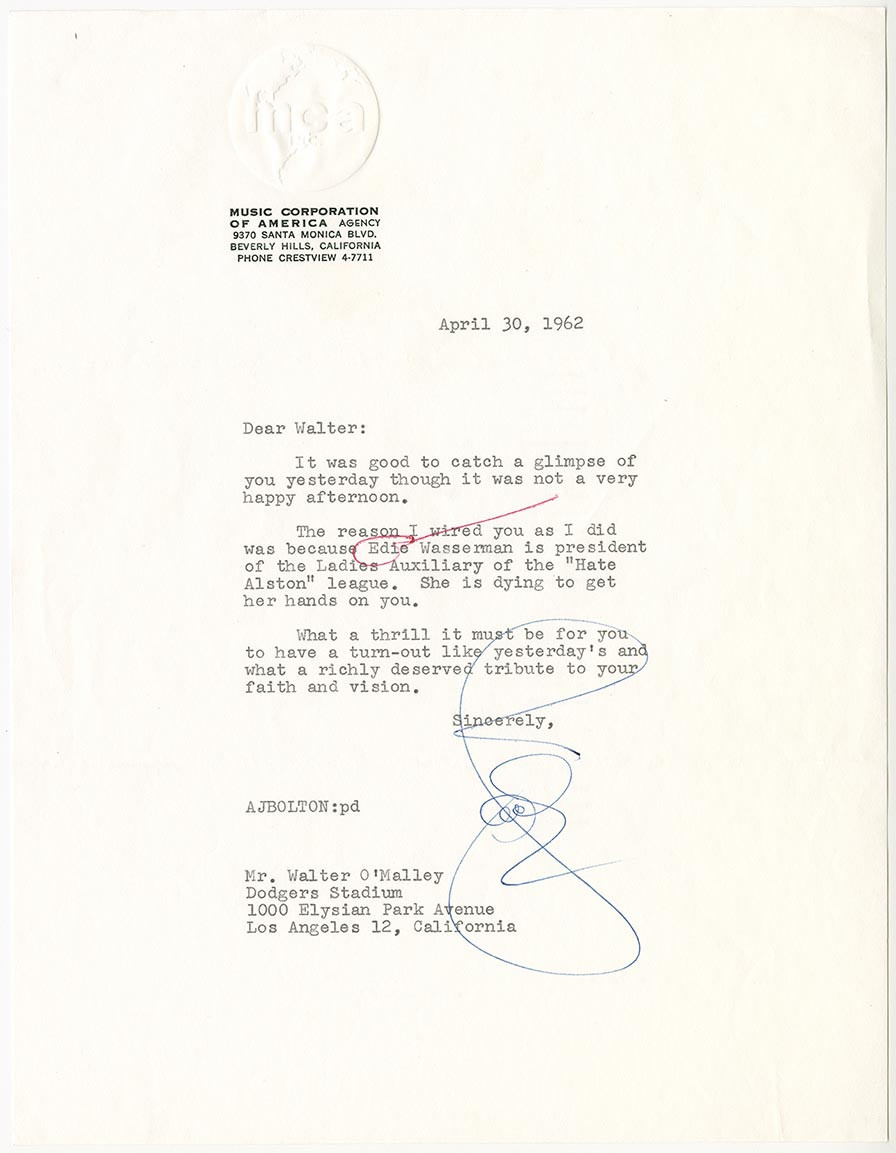This Day in Walter O’Malley History:
-
Walter O’Malley talks about the torrent of fan mail following the 1951 season, after the Dodgers had lost the National League Pennant to the New York Giants in the playoffs on Bobby Thomson’s stunning home run. Joe King, writing in The Sporting News, discusses with O’Malley how the mail, much of it critical of Manager Charlie Dressen, was handled. O’Malley said, “Was there much mail of that kind? There was a wave. Literally a wave, it seemed. A tremendous wave. But we took a lot of sting out of the early resentment by promptly answering complaints and putting our case squarely before the fans. We then had a second, but smaller, wave from those who had cooled off, and who expressed surprise that we acknowledged their letters. Now we are in another wave which leads me to believe the fans are back in the baseball business. They are running the team once more, and making many constructive suggestions to us. Much of our thinking for this season is based on fan mail.” Joe King, The Sporting News, April 30, 1952
-
Joe King writes in The Sporting News about the Dodgers’ plan, instituted by Walter O’Malley, to provide fans with player autographs on selected home games at Ebbets Field in Brooklyn. “O’Malley has put through one solid, but not spectacular stunt for autographing by the players,” said King. “There is a limit to the number of autographs a player can give,” said O’Malley, “but we don’t want Dodgers to give the impression they are high hat, either.” King continues, “To compromise, O’Malley arranged to have windows cut in the iron fence separating the fan runways from the player alley under the first base stands.” O’Malley explains, “The fans line up before the windows and we ring a bell every five minutes for a change of players. The fans then can get a shot at everybody on the team and the players are able to get the autograph problem under control.” Joe King, The Sporting News, April 30, 1952
-
A major baseball exhibit opens at the Museum of the City of New York on Fifth Avenue and is sponsored by Walter O’Malley, among a few others. The “Play Ball” exhibit traces the game from its birth and includes photographs, uniforms, bats, artwork, baseball parlor games, World Series scorecards and the famous 1851 fire engine “Big 6” from which Christy Mathewson of the New York Giants derived his nickname. Baseball films were to be shown in the Museum’s theater every Sunday in May.
-
After a Sunday Dodger doubleheader drubbing by the Pittsburgh Pirates (6-1 and 1-0) the day before, Music Corporation of America (MCA) President Lew Wasserman writes a note to Walter O’Malley stating, “It was good to catch a glimpse of you yesterday though it was not a very happy afternoon...What a thrill it must be for you to have a turn-out (51,574 in attendance) like yesterday’s and what a richly deserved tribute to your faith and vision. Sincerely, Lew”



